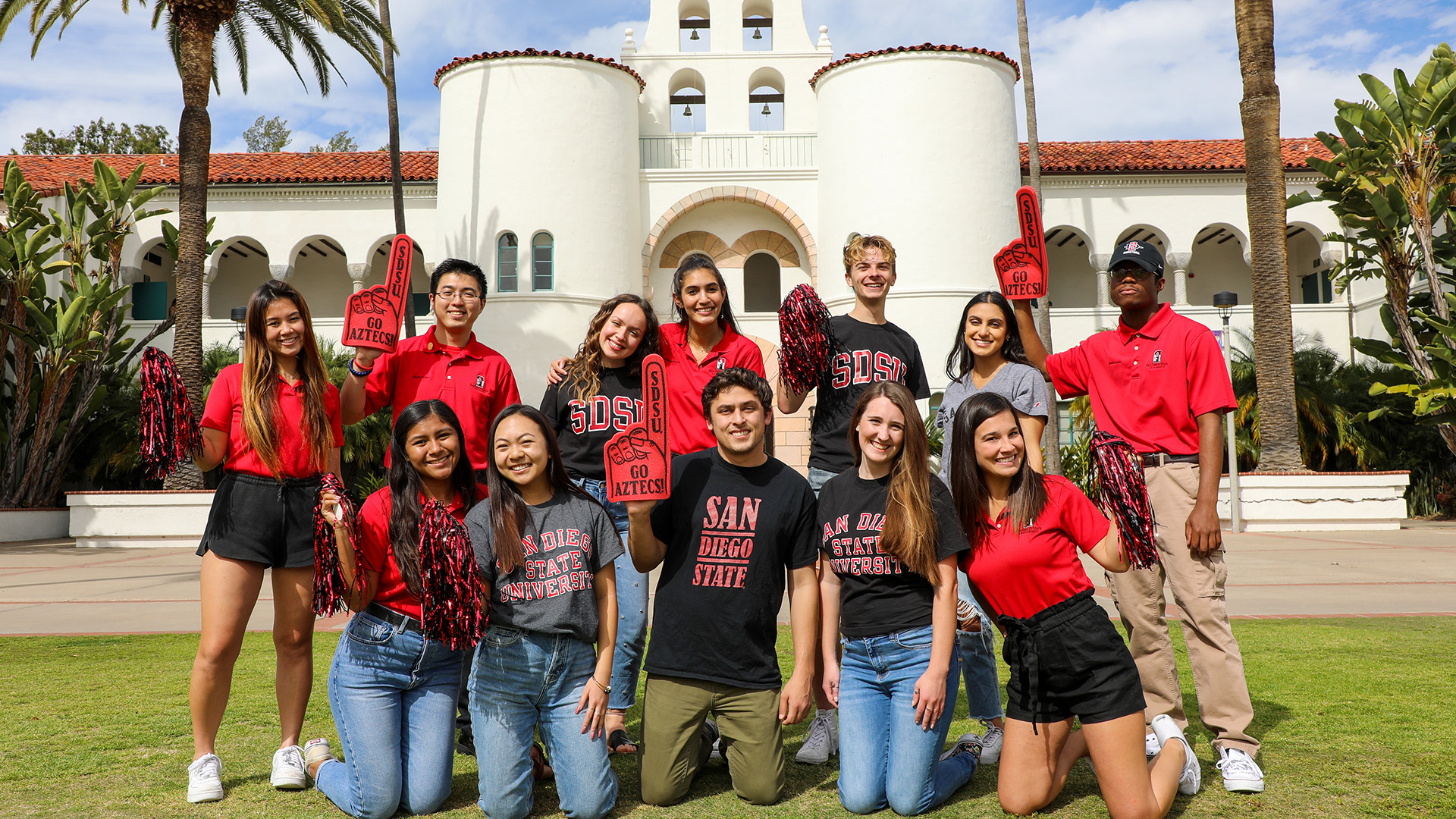7 Things About Michael Gerdes
Selected by the U-T San Diego as one of three Faces to Watch in Classical Music for 2014, Gerdes is focused on creating a thriving orchestral community at SDSU.

This semester, SDSU NewsCenter will focus on the arts with stories of the creative endeavors of our students, faculty, staff and alumni.
Michael Gerdes is the director of orchestras at San Diego State University where he conducts the San Diego State Symphony Orchestra and Opera Orchestra, as well as teaching courses in symphonic literature, piano, music technology and intro to music.
Selected by the U-T San Diego as one of three “Faces to Watch” in Classical Music for 2014, Gerdes is focused on creating a thriving orchestral community at SDSU.
1. What inspired you to do this kind of work?
My parents were both amateur musicians, so I grew up hearing rehearsals. Some of my earliest memories are falling asleep in the corner of the orchestra pit while my parents played a rehearsal. When I was a young college student, I played Sibelius’ Second Symphony and knew that I wanted to be an orchestra director.
2. How long have you worked at SDSU?
I’ve just moved to San Diego this past year from the Washington D.C. area and am finishing up my second semester with the School of Music and Dance. It’s such an exciting community to be a part of.
3. What is the best piece of advice you ever received?
I once asked Leonard Slatkin how to go about becoming a conductor. “Just start doing it,” he said. “Put groups together and start making music.” It was the push that I needed to make things happen. It’s important to realize that opportunity will not always present itself. Sometimes it needs to be created.
4. What is your favorite thing about your job?
The greatest part of my job is the time that I spend conducting the San Diego University Symphony. hey are fantastic and dedicated musicians and it’s a real privilege to lead them in rehearsal each week.
5. What about your field or position do you think would surprise people the most?
People often ask me about the gestures that conductors make. “How do they understand what you are doing?” I think that people are often surprised that conductors (in general) start with a very specific pattern when leading an ensemble. Any deviation from that pattern is to elicit a specific response from the musicians.
6. What is the most interesting or surprising thing about you?
I have a degree in philosophy, and I enjoy reading philosophy when I have a little bit of spare time. I also have enjoyed motorcycling since I was young and am really looking forward to spending some time traveling up the coast this summer.
7. If you could only rescue one thing from your burning office, what would it be?
My library of scores. Every piece I’ve conducted and all the annotations I’ve ever made while studying them are on my shelves. There would be no way to replace them.
Bonus Questions
1. What is your favorite kind of music/what are your favorite bands?
Duke Ellington once said, “There are two kinds of music, good music, and the other kind.” My favorite kind of music is good music. There is no single genre that I could devote all of my listening energy to. As for favorite bands, I’m a Bruce Springsteen and The E Street Band fanatic. Watching them perform a 3 ½ hour set for me is pure bliss.
2. What is your favorite sports team or who is your favorite individual athlete?
I was born and raised in Minnesota and I am a die-hard Minnesota Vikings fan. Being a Vikings fan is not always easy, but thanks to Adrian Peterson, I always have something to look forward to on Sundays. As a hockey fan, I also cheer for the Buffalo Sabres with Dr. Patrick Walders, our Director of Choral Activities!



